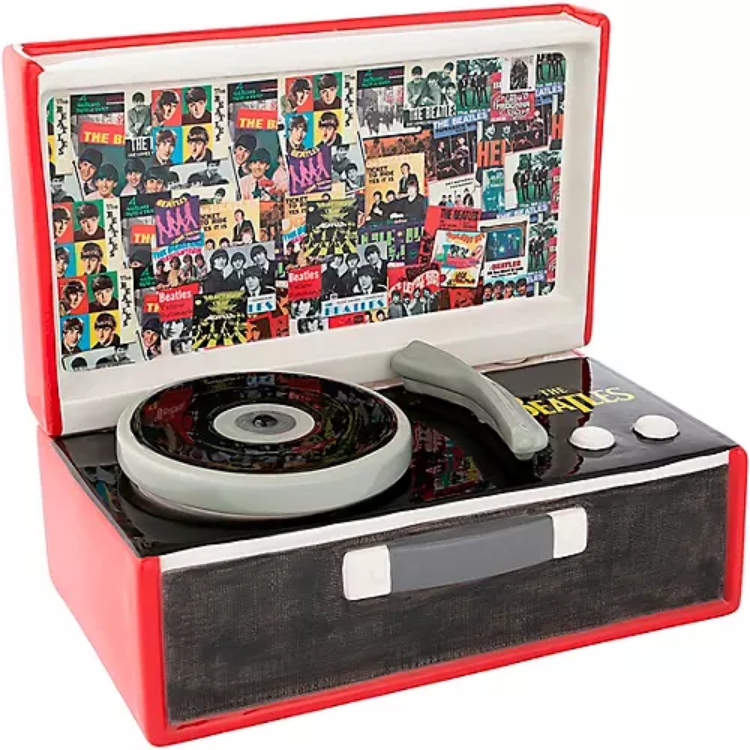- Register
- Log in to Tune-In
- Wishlist (0)
-
Shopping cart
(0)
You have no items in your shopping cart.
Beatles News

A judge in America has raised a provocative hypothetical during legal arguments around President Donald Trump’s use of an 18th-century wartime statute to deport Venezuelan gang members: ‘Could a president deport The Beatles?’
Jennifer Walker Elrod, chief judge of the 5th U.S. Circuit Court of Appeals in New Orleans, asked whether the same law could be deployed against a "British invasion" deemed to be corrupting young minds.
She described her reference to the 1960s moral panic surrounding The Beatles and other British bands as "fanciful". However, a government attorney responded unequivocally that the president possessed such power, and the courts would be unable to prevent its exercise.
“These sort of questions of foreign affairs and the security of the nation are specifically political issues,” said Drew Ensign, an assistant attorney general who was arguing the administration’s case before the full 5th Circuit Court of Appeals. Ensign said it would be up to Congress to check the president in that scenario.
The unexpected exchange came in the administration's appeal of a ruling by a three-judge panel of the 5th Circuit, one of the most conservative courts details

Every Beatle had their influence and hero, and for Paul McCartney, that artist happened to be Frank Sinatra. At 14 years old, years before his days in The Beatles, McCartney wrote a song called “Suicide”, taking inspiration from Sinatra, who was best known for “Come Fly With Me” and “My Way.” When an opportunity arose, and McCartney got in touch with Sinatra, the former Beatle sent “Suicide” to him. Ultimately, the song was rejected. Paul McCartney and Frank Sinatra Crossed Paths After The Beatles Disbanded.
It was not until Sinatra covered “Something” by The Beatles (written by George Harrison) that he viewed The Beatles favorably. The cover was the only time Sinatra crossed paths with the Beatles before he called the “Blackbird” and “Maxwell’s Silver Hammer” songwriter for a song after The Beatles’ disbandment, which McCartney enthusiastically accepted. Speaking on Sinatra’s influence on his songwriting to the McCartney Archive Collection, he said, “I had my Dad’s old piano at home that I used to tinker about on when there was no one in the house. And my feelings were, then, that if you were ever goin details

Rock legend Ringo Starr is working with Sam Mendes and his team on the director's ambitious four-biopic project about the Beatles – and RadarOnline.com can reveal the 85-year-old drummer is being an uptight micromanager about certain aspects of his life story, including his party-hearty days.
The upcoming movies – set for simultaneous release in April 2028 – are being touted as a "cinematic event" that examines the Fab Four's meteoric rise to fame from the perspective of its individual members.
In January 2025, RadarOnline.com reported Starr would be portrayed by Barry Keoghan and Paul McCartney by Paul Mescal – with late legends John Lennon and George Harrison played by Harris Dickinson and Joseph Quinn.
Now, an insider shared: "Some early concepts around what exactly the Ringo-focused movie would cover leaned into his hard partying during the height of the Beatles' success.
"He loved being famous more than the other three guys – that's a matter of historical record. Even with the casting of Barry, you see a perfect fit with that kind of 'wild man' rock star portrayal.
"But with the real Ringo's considerable input, the ideas have evolved, and they're tryin details

The Beatles drew from a wide variety of influences when making their music. While they borrowed from Elvis, Buddy Holly, and Chuck Berry, they had their ears open to many different genres. Don’t forget that the four men grew up in an era when rock and roll didn’t exist.
Even country music made an impact on them, enough so that they released their share of songs that could pass for country. Here are four original Beatles songs that sound as much like Nashville as they do Liverpool. “I Don’t Want To Spoil The Party”
The Beatles’ fourth album, Beatles For Sale, came at a point in their career when they were run a bit ragged by demands on their time. That’s why it’s not so surprising that some of the songs came out sounding a bit bluesy and introspective. “I Don’t Want To Spoil The Party”, written primarily by John Lennon, comes from the perspective of a jilted lover. This guy would rather abandon the scene than see the source of his pain. It comes replete with George Harrison’s Carl Perkins-style rockabilly riffs and close vocal harmonies borrowed from the Everly Brothers. It’s the first time that the group nodded to country mu details
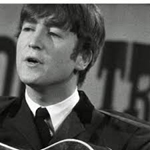
Of the four Beatles, John Lennon was always somewhat the antagonist, the one not worried to ruffle some feathers, and ultimately, the one who would always speak his piece, even if it wasn’t deemed appropriate or polite. This was one of the many factors that added to Lennon’s charisma and mystique, and one incredibly notable time he did just this was in front of the British royal family in 1963.
In 1963, The Beatles were the band in the United Kingdom. They were on the brink of infiltrating the United States market and, consequently, on their way to becoming the biggest band in the world. That being said, they had a platform, a platform John Lennon comically but also intellectually utilized when they performed in front of members of the British royal family at the Prince of Wales Theatre in London.
Typically called the Royal Command Performance, The Beatles took to the Prince of Wales Theatre to entertain both members of the royal family and other aristocrats in the audience. While it is unclear if there were any members of the working class in attendance, Lennon still made a clear, comical remark about class divide that would forever stick with his legacy.
That evening, the royal family membe details

In 1968, The Beatles were working on one of their most groundbreaking records, their self-titled album, better known as the White Album. They were coming off a psychedelic trend with Sgt. Pepper's Lonely Hearts Club Band, Magical Mystery Tour, and the White Album was a sharp turn back to rock 'n' roll. But of course, The Beatles were no ordinary band, and even when they were going back to basics, they still made history. One of the greatest songs included on this extensive double album is "Helter Skelter." This song was initiated by Paul McCartney, inspired by his competitive spirit, and ended up changing rock music forever. Sadly, shortly after the song was released, a tragedy overshadowed it and darkened the memory of the song for McCartney for years.
"Pete Townshend had been talking in the music press about how The Who had just recorded the loudest, the dirtiest, the rockiest thing ever," McCartney shared in his book, The Lyrics: 1956 to the Present. His response to Townshend's claim was the song "Helter Skelter."
"I came into the studio and said to the guys, 'Let's just see how loud we can get and how raucous. Let's try to make the meter peak.'"
Surrounded by press, The Beatles wave at fans as they arri
details
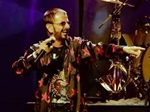
There are so many reasons why The Beatles became so big in the 1960s. First and foremost, their music was amazing. They had the boy band look and a fine mix of personalities that resonated with young listeners at the time. They had two legendary songwriters in the mix and four excellent musicians who could put all the pieces of a hit song together beautifully. And, according to Ringo Starr, there was another factor that was very important in the Fab Four’s massive success as the biggest band of the 20th century.
Back in 2018, the famed Beatles drummer sat down for an interview with AXS TV to talk about his own career and the glory days of the Fab Four. He talked about how each of the band members, including himself, often didn’t “get along” and would have “rows” at times. Fans of The Beatles likely know that this was particularly true of the band toward the end of their tenure together, which resulted in numerous fights and even lawsuits.
However, it’s clear that the members were friends; how could they not be after years together? On top of that notion, Starr noted that the key to keeping the band together and putting out as much music as they did came down to the work details

Besides being the most underrated songwriter in The Beatles, George Harrison was also an incredible guitar player who was fundamental to the band’s sound. He inspired countless guitarists around the world, many of whom, like him, became influential and carved their names in Rock history. Unlike his bandmate Paul McCartney, who gave thousands of interviews during his career, George didn’t talk to the press that much and spoke even less about other artists. However, he did share his opinions on some of them, including The Rolling Stones’ guitarist Keith Richards. What was George Harrison’s opinion on Keith Richards?
George Harrison was called “the quiet Beatle” by the media and fans during his career and he was always modest when it came to talking about his own guitar playing. When asked in an interview about ELO’s Jeff Lynne calling him a “great guitar player” and pointing out that Harrison always played it down when praised, he mentioned Keith Richards as one of the greatest Rock and Roll rhythm guitar players, but also said that the Rolling Stones member was not very good as a lead guitarist.
“I’m not playing it down. I’m just not pla details
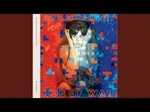
After the death of John Lennon, the focus on whatever Paul McCartney released next intensified. Macca came up big in 1982 with Tug Of War, an album that reunited him with producer George Martin and gave his solo career (he had recently scuttled Wings) excellent momentum.
The album proved to be a critical and commercial hit. Here are some of the stories behind the songs on that record, a special one in the McCartney catalog. The Last Gasps of Wings.
McCartney hadn’t committed to putting an end to Wings when he first began the process of making Tug Of War. That was in July 1980, as he assembled the remnants of the band (Denny Laine, Lawrence Juber, and Steve Holley) for some sessions. Of the songs that they tried, “Ballroom Dancing” was one that made it onto Tug Of War. And Laine would end up playing on a few other tracks as well. But McCartney felt that the sessions were disappointing, which eventually helped him pull the plug on Wings once and for all.
Two Albums’ Worth
Once McCartney committed to making it a solo record, he found that the songs started flowing very quickly. George Martin insisted on excellence in the material, pushing McCartney to really work the songs details
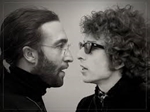
Like most in their generation, the Beatles were massive fans of Bob Dylan. They looked up The Bard’s singular lyrics and cultural outlook. But, like many other Dylan listeners, their fandom was shaken by the diversity of his career. Dylan is an artist who has never been afraid to shake things up. While admirable, that kind of artistry is not without its drawbacks. There was one Dylan evolution that didn’t strike the right chord with John Lennon. He labeled one iconic Dylan song “pathetic,” so much so that it prompted him to denounce his once-idol.
John Lennon was famously against organized religion. He wasn’t a completely atheist artist, but his spirituality or faith was a singular experience. He was turned off by the conventions and, perhaps, politics of religious models.
This point of view stood in stark contrast to that of Dylan’s in the late 70s, when he released “Gotta Serve Somebody”. This iconic song (or infamous song, depending on who you ask) was an unusual stance for Dylan to take. His “born again” Christian era was a shock to many listeners who thought of Dylan as a secular voice.
Lennon, due to their opposing views, turned away from details

When one thinks of The Beatles, one thinks of the greatest band of the 20th century. The Fab Four were enormous during most of the 1960s. And their legacy is still powerful today, over half a century later. It’s a little hard to believe that they did everything that they did within a span of just seven (and some change) years.
In fact, there’s photo evidence that really captures just how much The Beatles grew up and evolved between 1962 and 1969.
The first photo ever taken of The Beatles as we know them was shot on August 22, 1962. That photo was taken during the band’s first show together with Ringo Starr at the Cavern Club. The group looks very young, almost unrecognizable in the dim light of the brick-laid club. It’s worth noting that there are earlier photos of the band together, but not with Ringo Starr in the lineup. Several photos were taken that day in 1962, including the featured image of this article.
The Last Ever Photo of The Beatles Together
One of the final photos of The Beatles ever taken can be seen in the Instagram post above. Shockingly, that final photoshoot took place exactly seven years after the first photo The Beatles ever took together, on details

Some of our favorite rock bands have gone through their psychedelic eras. Having emerged during the 1960s, this subgenre of rock music, as we all know, was heavily influenced by psychedelic drugs and the countercultural movement of the time. Many of the most celebrated eras in music history are closely tied to this experimentation, including one of the most defining periods of The Beatles’ career. Some of their most celebrated psychedelic songs include “Tomorrow Never Knows,” “I Am the Walrus,” “Strawberry Fields Forever,” “I’m Only Sleeping,” “Only a Northern Song,” “Lucy in the Sky with Diamonds,” “Within You Without You,” “A Day in the Life,” and “She Said, She Said.” These songs are iconic in their own right and undeniably great. But there’s one song that marked a crucial turning point in their psychedelic journey. And if we’re ranking the very best, one could easily take the top spot: “It’s All Too Much.”
“It’s All Too Much” Was Written by “The Quiet Beatle”
“It’s All Too Much” is arguably the greatest work the Beat details

January 3 marked what would have been lauded Beatles producer George Martin’s 100th birthday. In commemoration of the milestone, Curvebender Publishing will release a book collection in April titled George Martin: The Scores, described as “the first-ever definitive collection of the legendary producer’s original music manuscripts.”
The three-volume set features full-sized reproductions of Martin’s handwritten scores, as well as commentary about the musical pieces, and new orchestral recordings made at the famed Abbey Road Studios in London. In addition, the multi-part tome includes a foreword written by Paul McCartney.
The publishing company began putting together George Martin: The Scores more than 10 years ago, working in close cooperation with Martin before his death at age 90 in March 2016.
The book’s preface, Curvebender collaborators Kevin Ryan and Brian Kehew recalled about the project, “As we worked—scanning, notating, building a database—George would occasionally pop in and observe over our shoulders. He had never seen the entire collection pored over in this manner. He would sometimes pick up a score and glance through it, bright eyes flicke details

Paul McCartney is remembering his late friend and fellow musician, Bob Weir.
Days after Weir's death at age 78 on Saturday, Jan. 10, McCartney took to Instagram to pay tribute to the late Grateful Dead co-founder while highlighting his lasting legacy on the music world. Paul McCartney Remembers the Last Time He Saw Bob Weir
In an emotional Instagram post shared on Thursday, Jan. 15, McCartney shared a photo of himself performing on stage with Weir, who he described as a "great musician who inspired many people of many generations."
McCartney, 83, went on to reflect on the last time he saw Weir while watching Dead & Company perform at Sphere in Las Vegas.
"He was very welcoming and during the interval in the show he invited us into his trailer, and it was a special moment to meet his family and friends," McCartney recalled. "Bob showed me the recording set up that he had in the back of the bus so even though he was on tour he could make and record music; I offered to play the bass on one of the tracks he played me but unfortunately that never came to pass."
McCartney's heartfelt message continued, "His humour, friendship and musicianship inspired me and will inspire many peo details
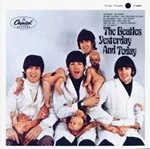
The Beatles had many iconic album covers. From simple shots of the band staring down the lens to more off-kilter, artistic choices, the Beatles’ covers were as diverse as their sound. It’s hard to find fault in any album cover from the Fab Four. Although if we had to, there is one that comes to mind…George Harrison certainly thought so, pointing a finger at one “gross” and “stupid” cover that shouldn’t have made it past the ideation stage.
In 1966, the Beatles released one of their more controversial records: Yesterday and Today. Though the album’s sound was par for the course, the cover turned heads.
The cover featured the band donning butcher coats, surrounded by headless baby dolls. Not the image one typically thinks of when discussing the Beatles. Somehow, the cover got through, although Harrison refused to give it his stamp of approval.
“Gross and Stupid”
Harrison made his feelings on the album quite clear, saying, “I thought it was gross, and I also thought it was stupid.”
“Sometimes we all did stupid things, thinking it was cool or hip when it was naive and dumb, and that was one of them,” he ad details

